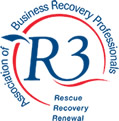ICS Bulletin for Professionals: Bounce Back Loans, CBILS & Risk to Directors
Jun 01, 2020

Risk to Directors – What happens if my Company fails and cannot repay CBILS or Bounce Back Loans
We’ve recently been asked for some thoughts regarding accountants’ clients making use of the Bounce Back Loans or CBILS facilities and what would likely happen if, after securing this funding, the business unfortunately does not recover and cannot avoid an insolvency process. In this bulletin we aim to provide some food for thought for when advising your clients who have already sourced such funding or are in the process of doing so and some potential problem areas to be mindful of. As ever, if you have any queries or want to discuss anything in more detail please don’t hesitate to get in touch.
Its Government backed so what’s the risk?
For Bounce Back Loans and CBILS below £250k there is no personal guarantee requirement for the facility. The Banks have the security that the taxpayer will cover either all, or 80% of the debt, if defaulted.
Being realistic, there will inevitably be a significant number of business that will unfortunately not be able to recover in the coming months/year, despite best efforts and having secured taxpayer backed finance to try and “bounce back” from the crisis. So, what will happen if the business enters an insolvency process without repaying the loan and what can a director expect?
As the finance is a loan and not free money, it is a debt owed by the company to the Bank in the first instance, who is then covered by the taxpayer. The debt ranks as a creditor in the insolvency proceedings. The directors are subject to the same statutory investigation and potential enquiries by the Insolvency Service under the Company Directors Disqualification Act as normal.
With the taxpayer picking up the tab for any defaulted loans, as well as the bill for furlough costs in addition to the usual Crown debts on insolvency, we think that HM Government will certainly be calling on IPs to recover funds when there has been some impropriety in obtaining and spending taxpayers’ money.
Suspension of Wrongful Trading, so what?
Whilst the government has protected directors from wrongful trading action and this is a nice headline grabber, wrongful trading is a typically difficult and expensive action for an IP to run, given the investigation needed and subjective conditions which must be proven in order for such action to succeed.
There remains a whole raft of other traps directors could fall into from which they are not immune, for example:
Misfeasance – Claims for breach of directors’ duties. When the company is insolvent, directors have a duty to act in the best interests of the company and this includes to act in the interests of the creditors as a whole.
Preferences – Claims to set aside transactions which have put certain people/entities in a better position. These typically include payments to directors (or associated family members/businesses) or payments to creditors who hold personal guarantees from directors.
Transactions at an Undervalue – Claims to set aside transactions which have seen company assets (or cash) moved away from the company without the corresponding value being received back into the company from the purchaser/acquirer.
Overdrawn Loan Accounts – Recovery of monies owed by directors to the company. Typically, when directors are paid via a loan account which is offset by dividends at each year end, however due to the insolvency there are no profits to pay a dividend to offset the loan account.
Ultra Vires Dividends – Leading on from the above, recovery of dividends paid when there are insufficient distributable reserves in the company or if by paying dividends this has caused a detrimental impact on the company and its ability to pay its debts as and when they fall due.
If a loan is taken out and funds are spent in the months before insolvency ensues, directors need to consider how their decision making is interpreted when the company’s records are reviewed. The decision making of the directors should be recorded at all material times so that it is clear to see what money is used for and why payments have been made.
What do clients need to do?
At the first sniff of insolvency or doubts about the company’s viability – SPEAK TO US!
Whilst this is foreign territory for directors and business owners, it is our day job and what we are licensed and regulated to do. We will assess the company’s financial position and explore all available options from informal company rescue through to advising on what a “clean slate” would look like through company closure and restarting in a new company. We can also discuss personal financial concerns of directors too. The importance of seeking early professional advice cannot be underestimated – we will not charge for initial meetings/advice.
As a reminder, our four core service offerings are: -
1. Restructuring & Insolvency
2. Advisory
3. Funding Solutions
4. Personal Debt
SPEAK TO US
We are here to speak to whenever you like. We can set up a call or video conference between us, you and your client to deal with pressing matters and to bounce around ideas. As always, we don’t charge for initial advice and all our discussions are in the strictest of confidence.
Andy - 07812 338252 or andrew.rosler@idealcs.co.uk
Tom - 07795 196619 or tom.bowes@idealcs.co.uk



